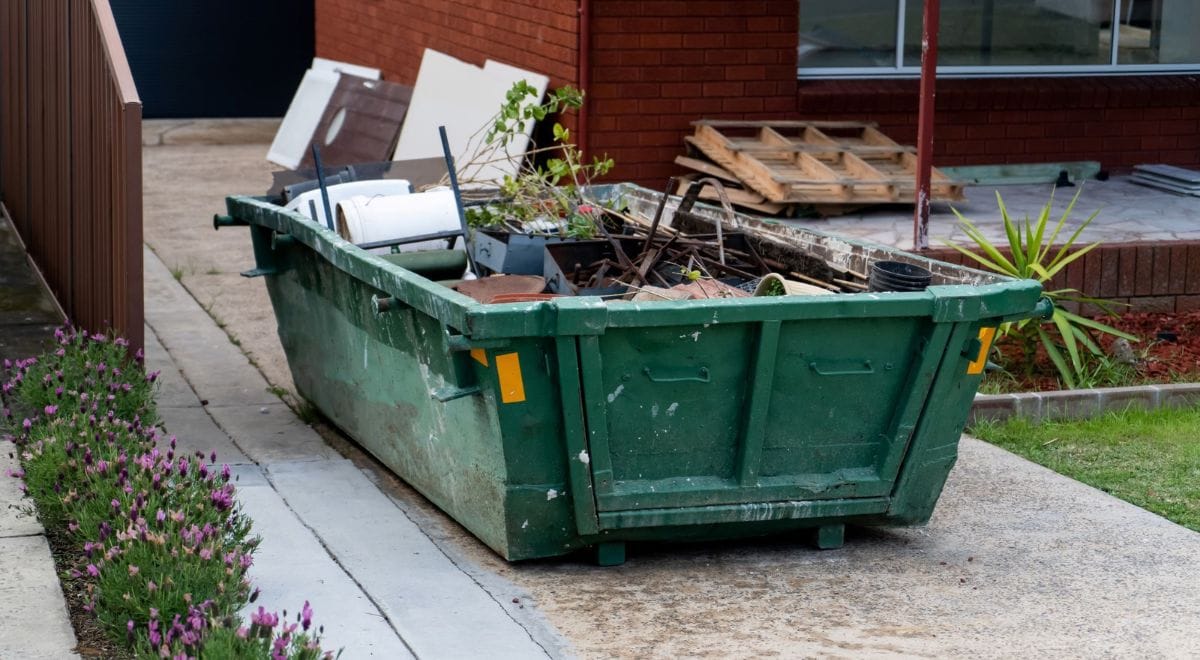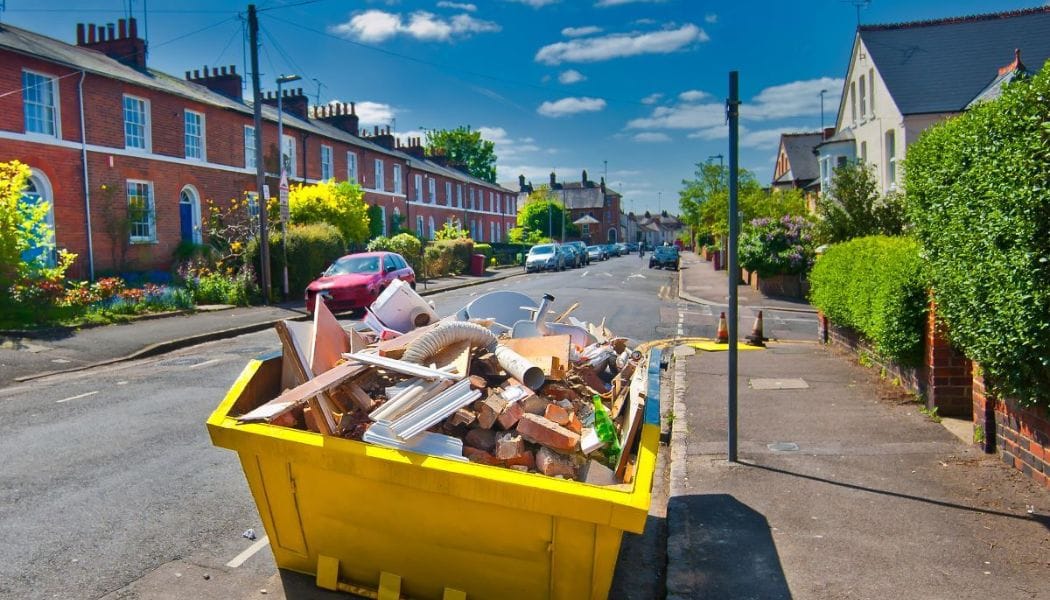Common Mistakes When Choosing Skip Bin Sizes And How To Avoid Them
Save Time & Money: Choose the Right Skip Bin Size for Your Waste Management Needs. Perfect for Home Renovations, Decluttering, and Commercial Waste Disposal.

Choosing the right skip bin size is crucial in waste management and disposal. Whether undertaking a home renovation project, decluttering your space, or managing waste in a commercial setting, selecting the appropriate skip bin size can save you time and money.
Unfortunately, many individuals and businesses often make common mistakes in this process, leading to inefficiencies and unnecessary expenses. This article will explore some of the most frequent errors people make when choosing skip bin sizes and provide valuable tips on avoiding them.
By understanding these pitfalls and adopting the right strategies, you can ensure an optimal waste management solution that perfectly aligns with your needs and budget.
Common Mistakes In Choosing Skip Bin Sizes
To ensure the proper selection of the correct skip bin size, it is imperative to avoid these common mistakes:
1. Choosing A Skip Bin That's Too Small
Many individuals or businesses often need to pay more attention to the amount of waste they need to dispose of, leading them to choose a skip bin that is too small. This mistake frequently occurs when planning for significant events like weddings, birthday parties, or corporate functions, where a substantial amount of waste is generated and requires removal.
Not accurately comparing different skip bin dimensions and estimating the quantity of waste can result in a selection that lacks sufficient space to accommodate it all. Therefore, it’s vital to consider all potential waste sources and accurately assess the amount of waste before deciding on a skip bin size.
One way to ensure an appropriate size is selected is by obtaining an estimate from your local garbage collection service on how much waste they expect will be generated at the event and then adding 10-20% extra capacity on top of that figure.
2. Opting For A Skip Bin That's Too Large
Choosing an excessively large skip bin can result in undesirable outcomes when planning for waste disposal needs. It can create complications if there is limited space available for placing the skip bin or if the amount of waste generated is insufficient to fill it.
This frequently leads to the delivery of an oversized bin, causing payment issues as customers are obligated to pay for the size of the skip bin they requested, regardless of whether they utilize its full capacity. Returning a skip bin after delivery can sometimes take time and effort, leaving customers paying the total price for an unused resource.
In addition, opting for a larger than necessary skip bin can create environmental concerns. If more waste is collected than needed, extra resources such as fuel and transport are consumed to remove unnecessary debris and rubbish from sites.
3. Neglecting Weight Restrictions
Failing to consider weight restrictions when selecting a skip bin can lead to costly and potentially dangerous consequences. Skip bin providers typically impose strict weight limits on the amount of waste that can be placed in their bins, so exceeding these limits could result in an additional charge or fines.
Additionally, overloading the skip bin with too much waste could pose a safety risk if the extra weight causes it to become unstable and cause injury or damage to property. Individuals need to be aware of their local area's rules and regulations regarding waste disposal before renting a skip bin to avoid these risks.
Moreover, they should ask their chosen provider about any applicable weight restrictions and request that they provide written confirmation of this information. This will help ensure that an appropriate size and type of skip is selected for the task at hand while also preventing potential costs or penalties from being incurred due to violations of local laws.
4. Not Considering Access Constraints
Neglecting to consider access constraints when renting a skip bin can lead to costly and potentially dangerous results. Care must be taken to ensure that the skip bin hire company's trucks can access the chosen size of bin and delivery location. These vehicles may have height, width, or length restrictions that must be considered before committing to a particular size or delivery point.
Failure to account for these factors means the skip bin hire company may be unable to deliver, resulting in wasted time and money and potential safety hazards from having an oversized or overweight vehicle on certain roads.
For this reason, it's essential for customers seeking to skip bin hire services to clearly outline access requirements before signing any contracts with suppliers. This includes providing relevant information like road dimensions and possible obstructions, such as overhead power lines, etc., so an appropriate-sized truck can be used for the job.
5. Ignoring Legal And Environmental Regulations
In addition to considering access constraints, another critical factor for selecting the appropriate skip bin size is ensuring that legal and environmental regulations are followed. It’s essential to consider any national or local laws concerning waste disposal, as failure to do so could result in hefty fines or other penalties.
Furthermore, it’s necessary to properly dispose of any hazardous materials present in the waste to avoid potential health risks. Depending on the type of material, there may be specific requirements for its disposal, which must also be considered when selecting a skip bin size.
Environmental considerations should also be made when selecting a skip bin size. For instance, disposing of large amounts of organic waste can create an unpleasant smell and attract pests such as rodents or flies. To minimize these issues, selecting a bin that provides enough capacity for waste while still allowing for regular collection and removal services is essential.
6. Failure To Account For Special Waste
Not accounting for special waste when selecting skip bin sizes can have potentially serious consequences. This refers to any hazardous or non-hazardous material that is not considered usual rubbish and must be disposed of in a specific manner. Examples include oil, paint, solvents, asbestos, and chemical products.
Failure to recognize the need for additional bins designed for such materials may result in public health risks due to improper disposal of toxic substances. In addition, it can also result in legal action being taken against those responsible for the incorrect handling of these dangerous materials.
To avoid this situation, individuals selecting skip bins should thoroughly examine what types of waste will be placed inside and seek advice from industry professionals if necessary. If any unique material is identified, an appropriate specialist container should be selected that meets all required safety regulations and applicable environmental laws.
7. Overlooking Duration Of Rental
In addition to proper skip bin size selection and accounting for special waste, it's essential to consider the rental duration. Many individuals must consider how long they will need a skip bin for their project, resulting in either a too-small container or one rented for too long. Overlooking this factor can lead to substantial extra costs and be inconvenient when switching bins halfway through the project.
When selecting a skip bin size and rental period, it's vital to estimate the amount of waste and the time needed accurately. This includes calculating how much waste will be thrown away daily throughout the project and considering any additional materials that may need disposal during this time frame.
8. Disregarding Customer Support And Service
Neglecting customer support and service when selecting a skip bin provider can lead to unsatisfactory outcomes. Customers should evaluate the quality of customer service offered by potential skip bin providers through reviews, online forums, and personal recommendations.
This will give customers an indication of how their needs will likely be met during the rental period. It’s also crucial to consider whether the provider offers additional services such as free delivery or pick-up, discounts for repeat customers, or same-day delivery options.

Reliable customer support is essential when dealing with any rental agreement. Skip bin companies should have qualified staff available 24 hours a day in case of any problems or queries that customers may have during their rental period.
Tips For Choosing The Right Skip Bin Size
When selecting a skip bin, it’s vital to take the time to consider the following tips:
- Researching And Comparing Skip Bin Providers
Comparing skip bin providers is essential to select an appropriate bin size. Researching different options, including price and availability, is important before deciding on a provider. The consumer should also consider the equipment provided by the company and how helpful their customer service staff are in helping them choose the right skip bin size for their needs.
Additionally, it’s beneficial to read reviews from other customers who have used the services of skip bin providers to get an idea of what others think about their services. Moreover, when researching skip bin providers, consumers should be aware of any additional fees or charges associated with renting a skip bin, such as delivery or late return fees.
- Seeking Recommendations And Reviews From Others
Seeking reviews and recommendations from others is an essential step in selecting the right skip bin size for one's needs. It's a good idea to ask family, friends, neighbors, or colleagues who have used skip bins before for their thoughts and feedback.
They can provide helpful advice on which sizes are best suited to certain types of jobs and recommend reliable providers that offer competitive prices. Reviews from previous customers should be read carefully as this will give a better insight into the provider's quality of service.
Finding reviews online via websites such as Google Businesses or Yelp is also possible. Reading these can provide valuable information on how efficient, reliable, and cost-effective different skip bin providers in the area provide the services. However, care should be taken when reading online reviews, as some could be biased or exaggerated.
- Consulting With Waste Management Professionals
Consulting with professional waste management experts can offer insights into a project's most appropriate skip bin size. Waste management professionals have experience determining which bin size best suits the type and amount of waste produced by any given task.
They can also advise reducing waste and making it easier to dispose of correctly. This could help ensure that the correct size skip bin is chosen, reducing costs associated with over or under-sized containers and ensuring legal compliance.
Furthermore, their expertise can help identify potential household hazardous wastes, which require special handling procedures. Taking advantage of this knowledge and expertise can help avoid costly mistakes when choosing a skip bin size for a particular job.
Conclusion
Choosing the right skip bin size is an important decision that should not be taken lightly. It’s essential to consider the amount and type of waste involved before selecting a bin. Mistakes in choosing a skip bin size may lead to inadequate capacity, extra costs, or potential harm from overloaded bins.
By considering factors such as waste volume, types of materials, access limitations, and delivery charges for different sizes of skip bins, one can avoid common mistakes and select the most suitable size for their needs. Doing so will provide maximum efficiency and cost-effectiveness when dealing with waste removal.


Comments ()